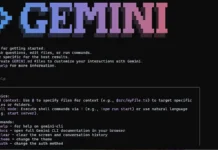Linux kernel 6.8 is released. Linus Torvalds made an announcement about it on monday, marking its general availability. This latest stable version brings forth a plethora of new features and enhancements.
Among the highlights of Linux kernel 6.8 are the introduction of LAM (Linear Address Masking) virtualization and guest-first memory support for KVM, along with basic online filesystem check and repair capability for the Bcachefs file system introduced in the previous version. Additionally, support for the Broadcom BCM2712 processor in Raspberry Pi 5 and AMD ACPI-based Wi-Fi band RFI mitigation feature (WBRF) are also included.
A notable addition is the initial Rust support for the LoongArch architecture, enabling UFFDIO_MOVE uABI operation to facilitate page movement within a virtual address space. Furthermore, the kernel introduces KSM advisor feature for automatic management of the kernel samepage merging subsystem, and support for creating network PHY drivers in Rust.
Linux kernel 6.8 also brings optimizations for various networking operations to improve cache efficiency, updates the perf tool with data-type profiling support, and implements SBI-based suspend to RAM feature. Moreover, it adds host-side support for Intel’s Trust Domain Extensions (TDX) and CSI-2 and MIPI DisCo for Imaging support to ACPI device enumeration.
Hardware support sees improvements with IRQ override quirks for several laptop models and new drivers for network appliances, temperature sensors, and gaming peripherals. The kernel is expected to be short-lived with support for only a couple of months before being succeeded by Linux kernel 6.9, slated for release in mid-May 2024. Linux users can download kernel 6.8 from Linus Torvalds’ git tree or the kernel.org website.
For Latest Tech Updates Please follow us :
facebook | twitter | instagram | telegram | whatsapp





